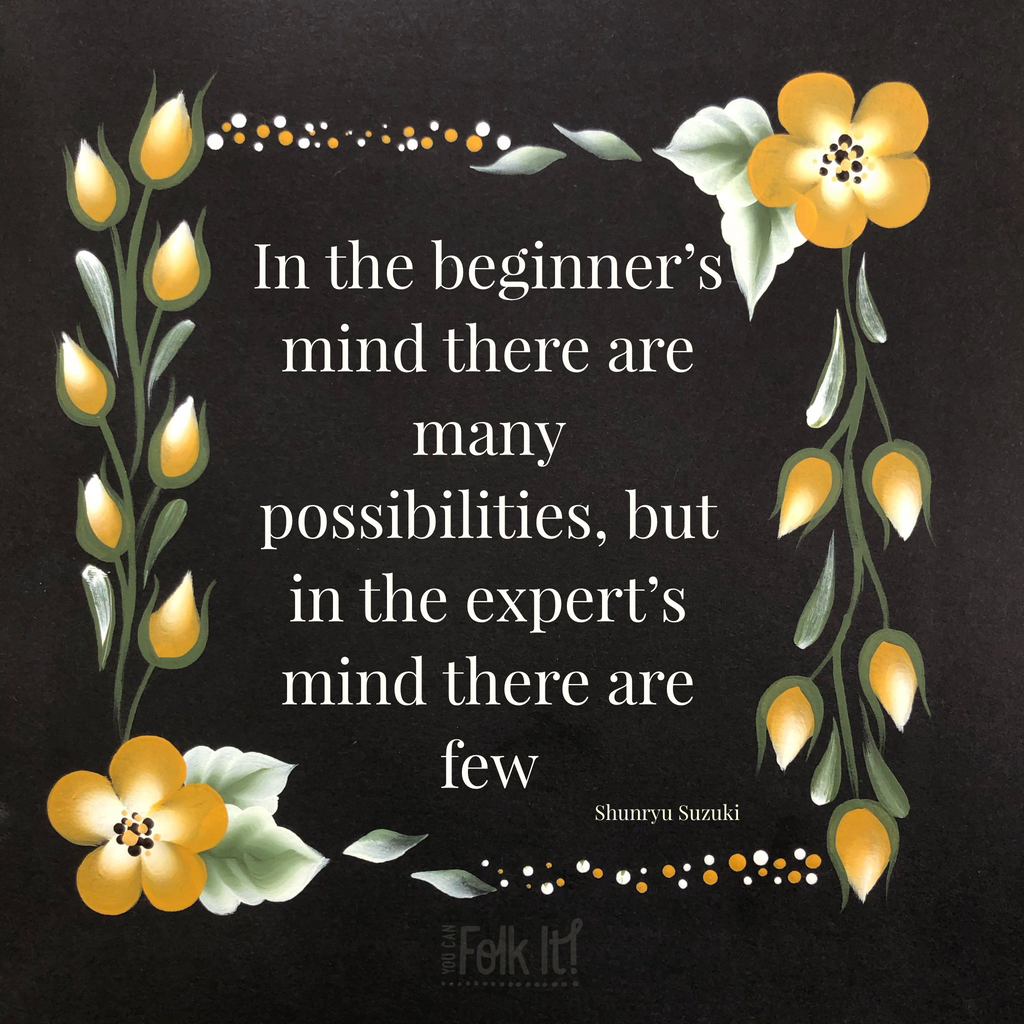How To Adopt A 'Beginner's Mind'

We can completely understand people when we hear them say that knowledge is a curse. We look at a child and envy their view on the world: their excitement on seeing an animal, their joy of jumping in puddles, or their reactions to tasting something for the very first time. Once we have acquired knowledge, it is often a challenge to hold onto that state where we are open to learning, experiencing and exploring - we lose that ‘Beginner’s Mind’.
Once we become limited by the idea that we ‘know’ things; for example, that we won’t be good at something or that it will be too hard, our world begins to shrink and our creative energy doesn’t flow as it should. So how do prevent this from happening? How do we cultivate a beginner’s mindset where you are curious and open to new ideas and possibilities?
There are a few things you can do. Some of these actions may be as easy as they sound, some may take work and practice. These are particularly useful before you start a new project or when you wish to make a decision.
Try to stay present and in the moment.
If you have thoughts of past failures, acknowledge them and try to let them go. Know that those past experiences are just that, in the past. Try to imagine that you are seeing what you are seeing, hearing what you are hearing, all for the very first time. Choose to stay focused on the present moment.
Reframe your thoughts of failure.
We all have fears of failure or of not being good enough - the beginners mind does not acknowledge failure. The beginner’s mind instead sees mistakes and ‘failures’ as opportunities to learn. When mistakes happen, get curious, ask yourself: Why did that happen? What could you do differently next time? Did you like anything about the outcome? When things do not go to plan, learn from them and keep moving forward.
Remind yourself that you don’t know - get curious.
When we are starting something new, our brains often try to figure out what is going to happen in uncertain situations - a mechanism that has developed to help keep us safe. When adopting a beginner’s mind, remind yourself not to pre-judge. Instead of saying "I'm not trying that because I was not good at [something similar]" tell yourself "This is a new experience, I don’t know what’s going to happen".
Let go of labels.
Let go of all the different labels you have for yourself and others - and the beliefs that accompany them. These labels and beliefs will encourage behaviours in you that close you off to new experiences. The beginner's mind requires you to let go of these labels, stereotypes and beliefs.
Adopting a beginner’s mind is about asking lots of questions rather than assuming you know the answers. It is about reminding ourselves that the possibilities will far outweigh the problems. The journey back to the beginner’s mind will take practice as you learn to quieten the inner critic or 'know it all' in your mind, but once you start getting better at it, your world will begin to open up once again to all the possibilities it has to offer.
Have you tried adopting a beginner's mind before? We'd love to hear your experiences in the comments.
